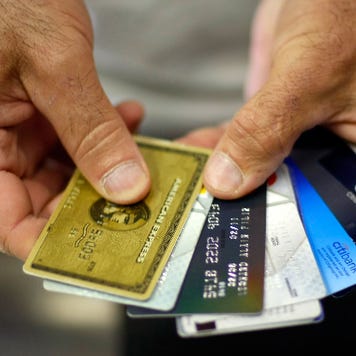Credit Card Advice
Check out the latest rewards credit card news and advice from our team at Bankrate.
We can help you find the right credit card to earn cash back and maximize your points and miles.
Featured by names you know and trust
The Latest Credit Card Advice

A new credit card, timed right and used strategically, can help you fight high prices.

Read Bankrate’s list of the best credit card rewards programs for 2026.

Here’s how to increase your credit limit.

Most major credit issuers no longer allow credit card co-signers.

See which BofA offers you qualify for without hurting your credit.

Bank of America and Chase offer some of the best rewards credit cards on the market.

Use tax-free weekends and rewards cards to save on back-to-school shopping.

There are several benefits to upgrading your card with your current issuer.











